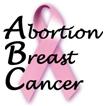Breast Maturity & Breast Cancer Risk
Breast Maturity & Breast Cancer Risk
Another aspect of breast development affecting breast cancer risk is the maturation of cells, which make up the milk glands (lobules), from type 1 lobules to type 4 lobules. Breasts are composed of milk glands (lobules), which make milk, and are surrounded by supportive tissue made of fat and connective tissue.
At birth, you have primitive type 1 lobules, which are very immature and which have many TDLUs (terminal ductal lobular units), where cancers are known to arise. These type 1 breast lobules develop into type 2 lobules at puberty, which are still primitive and susceptible to carcinogens. During the 3rd trimester of pregnancy (after 32 weeks), the breast lobules mature into type 3 lobules. Type 4 are formed after childbirth and produce milk. Both type 3 and type 4 lobules are resistant to carcinogens. (See diagram)
The principle of breast cancer risk relating to cell maturity can explain other well documented breast cancer risks as well.
If a woman does not have a full-term pregnancy (meaning she is childless or nulliparous), she has increased risk for breast cancer, since she never develops type 3 and 4 lobules. If she has children later in life (after age 30), she has increased risk, because, for most of her menstrual life, her estrogen has been stimulating immature type 1 and 2 breast lobules. If she has children as a teenager, she has decreased risk of breast cancer, since her breast tissue matures very early in her menstrual life to type 3 and 4 lobules.
If a woman breast feeds, she often has low estrogen cycles or misses menstrual cycles altogether. She has decreased risk due to two factors: less exposure to estrogen and breast tissue maturity to type 4 lobules. Risk decreases more with longer duration of breastfeeding.
The risk factors of estrogen exposure and breast maturity can also act in concert with one another, causing greater risk. For example, if a teenager, who has not had a full-term pregnancy (she is nulliparous), takes birth control pills, her risk of breast cancer is much higher than a woman who has had several children and then takes birth control pills.
The longer your exposure to increased levels of estrogen, the higher your risk will be. Taking hormone replacement therapy after menopause for 1 to 2 years does not significantly increase breast cancer risk. However, a woman who has taken hormone replacement for years, especially if she had not had a full-term pregnancy and had taken birth control pills most of her life, will have significantly increased breast cancer risk.


